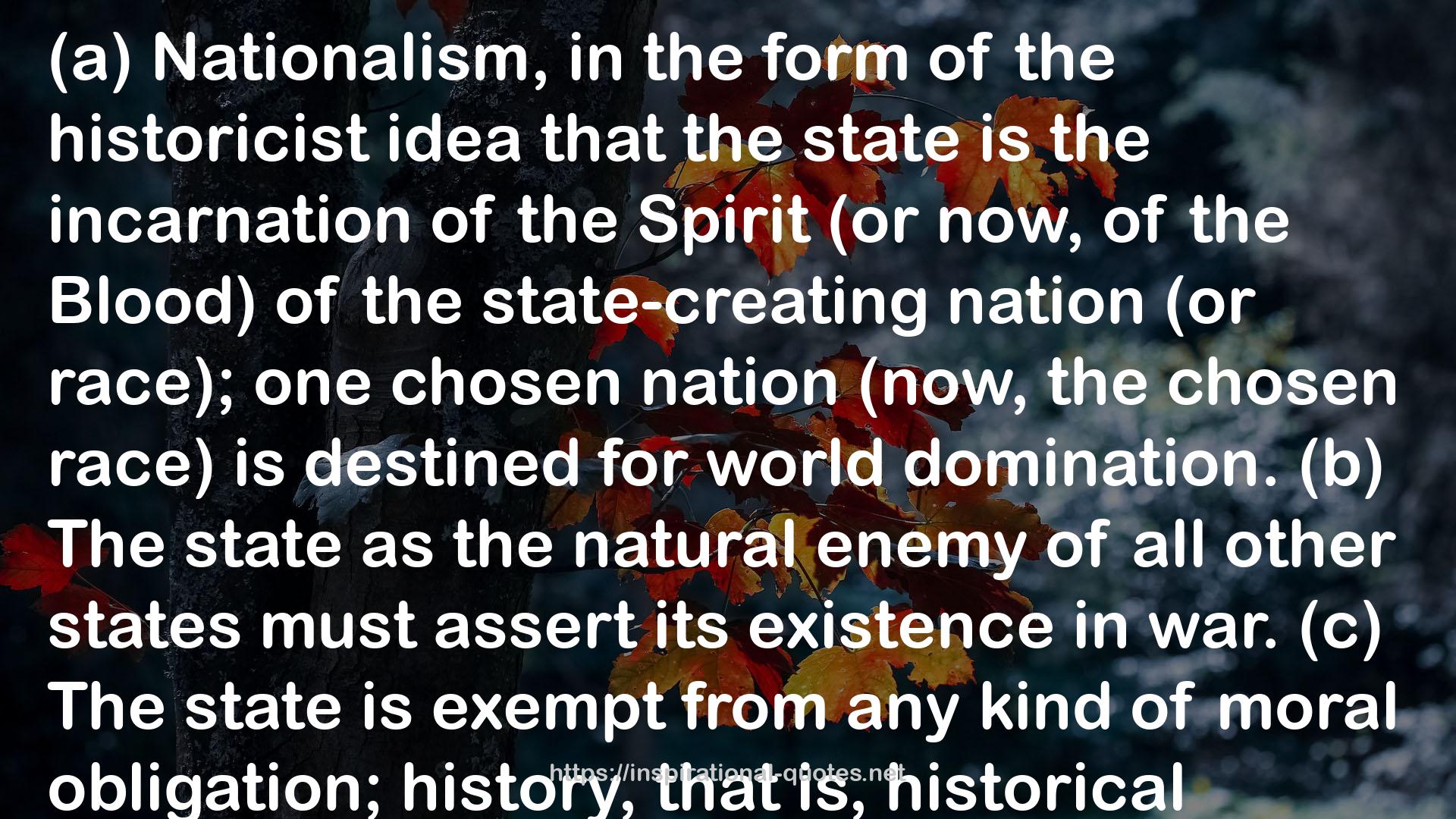" (a) Nationalism, in the form of the historicist idea that the state is the incarnation of the Spirit (or now, of the Blood) of the state-creating nation (or race); one chosen nation (now, the chosen race) is destined for world domination. (b) The state as the natural enemy of all other states must assert its existence in war. (c) The state is exempt from any kind of moral obligation; history, that is, historical success, is the sole judge; collective utility is the sole principle of personal conduct; propagandist lying and distortion of the truth is permissible. (d) The ‘ethical’ idea of war (total and collectivist), particularly of young nations against older ones; war, fate and fame as most desirable goods. (e) The creative rôle of the Great Man, the world-historical personality, the man of deep knowledge and great passion (now, the principle of leadership). (f) The ideal of the heroic life (‘live dangerously’) and of the ‘heroic man’ as opposed to the petty bourgeois and his life of shallow mediocrity. "
― Karl Popper , The Open Society and Its Enemies
